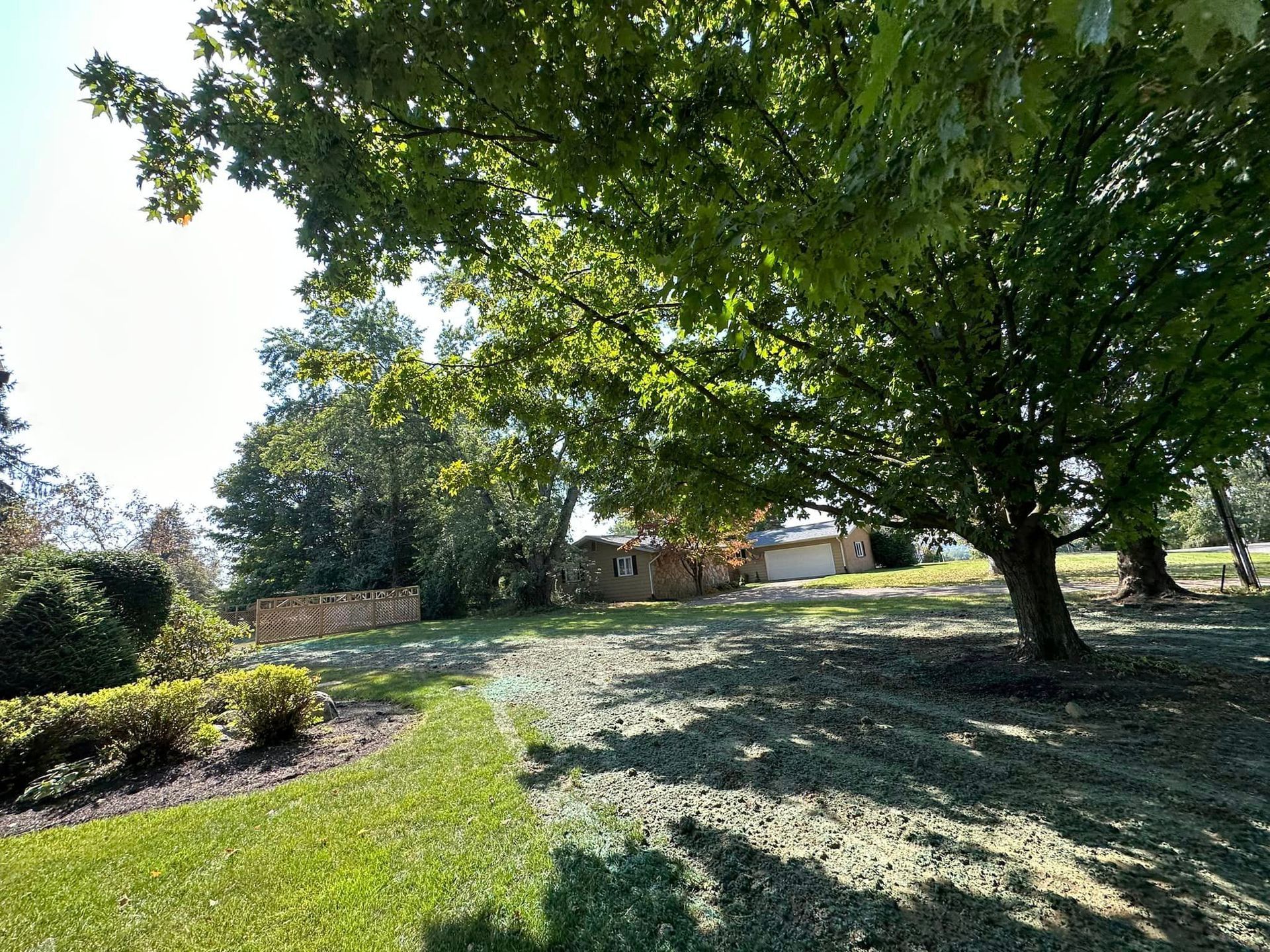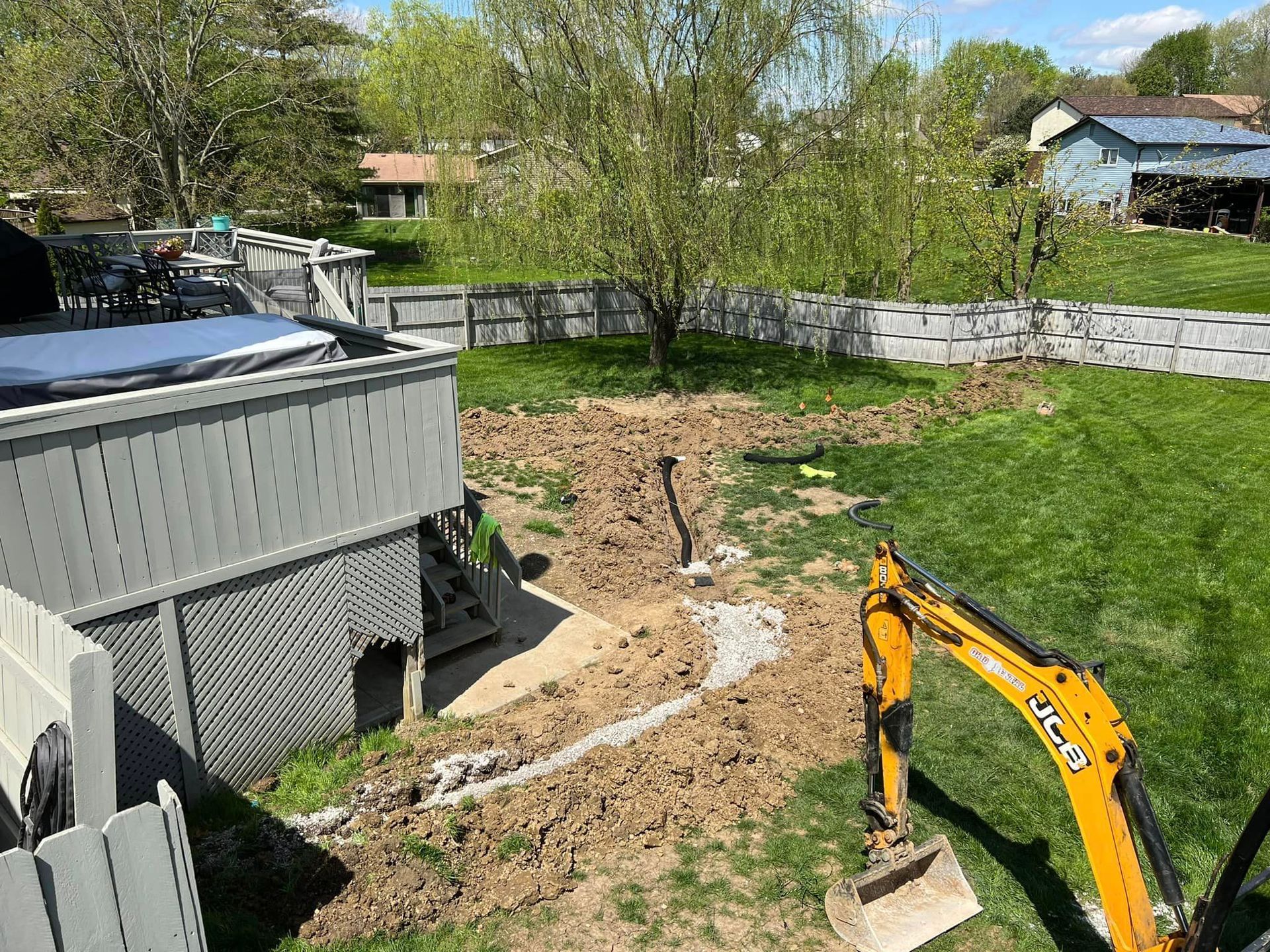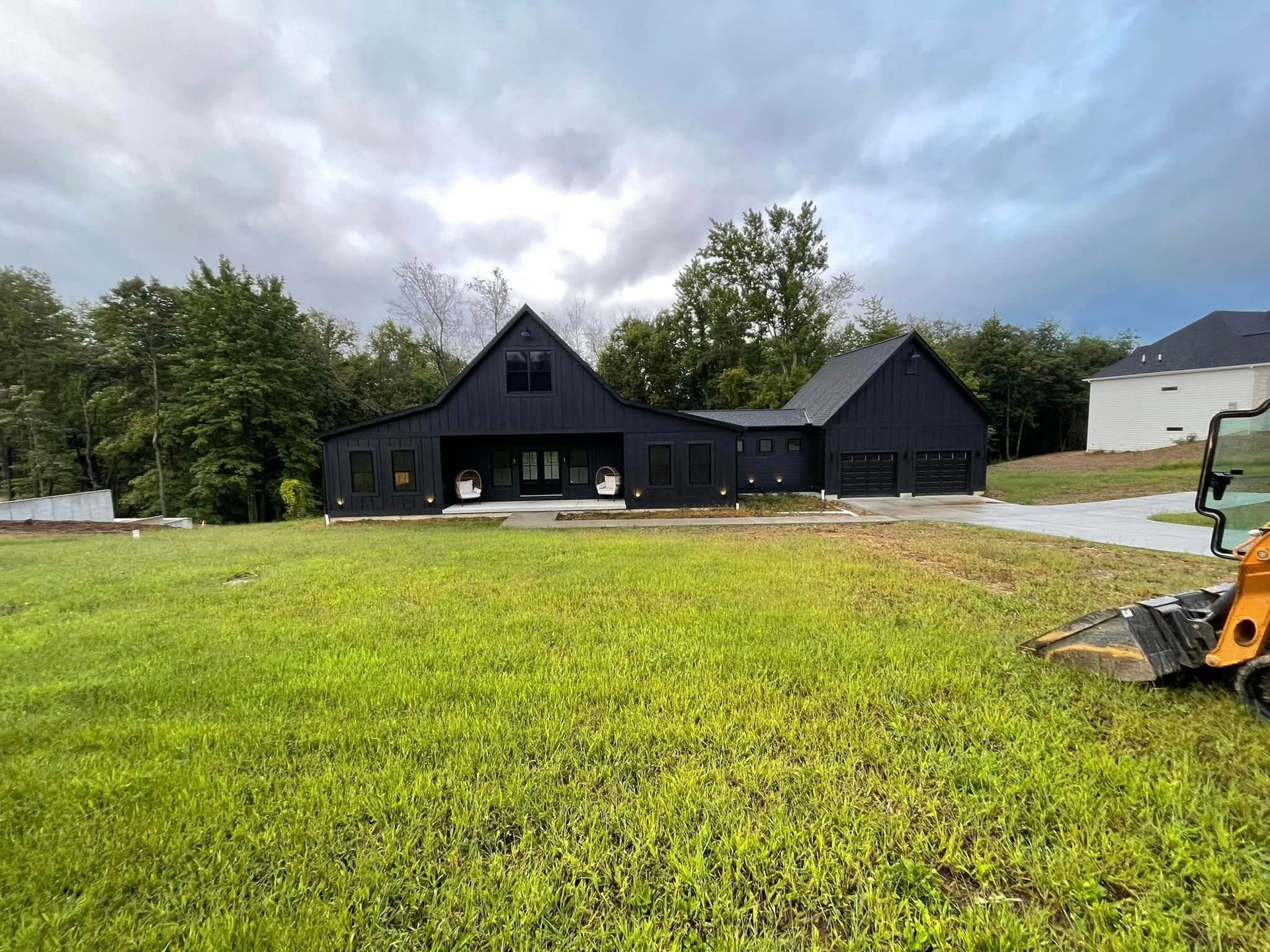Planning for the Unexpected: How We Handle Job Site Access Issues in Westerville
Double B Excavations & Grade LLC
Navigating Construction Challenges
ADAPTING TO ACCESS ISSUES IN WESTERVILLE
Sometimes the biggest challenges in construction aren't about the work itself - they're about getting to the work in the first place.
That's exactly what we faced this morning in Westerville.
You can have the best equipment, the right materials, and perfect timing, but if your delivery trucks can't make it to the site, you've got to think fast and adjust.
These access issues might seem simple on paper, but they're one of those challenges that can throw off an entire project timeline if not handled right.
It's not just about having a Plan B - it's about knowing how to pivot quickly while keeping your customer informed and your project moving forward.
Welcome to Double B!
The Morning's Challenge
Here's what happened: We showed up early to our Westerville site, ready to get started. The stone company was right on time too - everything was lined up perfectly. But as soon as we saw the delivery trucks trying to navigate that turn, we knew we had a problem. The road was just too narrow for trucks that size to make the turn safely.
Now, we could have tried to force it. We could have spent hours trying different angles or risking damage to property. But experience has taught us that when you run into these kinds of challenges, it's better to step back and find a smarter solution. In this case, that meant rescheduling for next Thursday with smaller trucks that can handle the tight turns.
That's one of the benefits of having years of experience - you learn to spot these issues quickly and make decisions that save time and headaches in the long run. Instead of wasting the customer's time (and money) trying to force something that wasn't going to work, we immediately started working on a better solution.
Understanding Site Access Challenges
Let me break down why site access matters so much in our line of work. When you're dealing with stone delivery, we're not talking about a standard pickup truck. These are big rigs carrying tons of material, and they need space to work. In residential areas like Westerville, we often deal with challenges that most people don't think about until they become problems.
Think about your own neighborhood for a minute. Those streets that seem plenty wide for your car? They can become pretty tight when you're trying to turn a fully loaded dump truck. And it's not just about the width of the road - you've got to consider things like overhead lines, tree branches, mailboxes, and other obstacles that could get in the way. Plus, you need to make sure there's enough room for the truck to safely dump its load once it gets there.
Professional Problem-Solving in Action
This is where experience really comes into play. As soon as we spotted the issue this morning, we kicked into solution mode. First step? Clear communication with our customer. We showed her exactly what was happening, explained why it wasn't safe to proceed, and laid out our plan to fix it.
Here's what that plan looks like: Instead of trying to force those bigger trucks through next week, we're bringing in smaller trucks that can handle the tight turns. Yes, it might take a few more trips to get all the material on site, but it's a whole lot better than risking damage to property or having trucks stuck in the middle of the street.
Meanwhile, we didn't let this setback waste our whole day. That's another key part of professional problem-solving - always having backup work ready to go. While we couldn't complete this particular job today, Easton and I headed straight to another project. This keeps our schedule on track and makes sure we're using our time efficiently, even when things don't go according to plan.
Why This Matters
You might wonder why we're spending so much time talking about a truck that couldn't make a turn. Here's the thing: in construction, the smallest details often have the biggest impact. When we take the time to handle these challenges the right way, we're protecting both our customer's property and their project timeline.
Think about what could have happened if we tried to force those bigger trucks through anyway. Best case? We waste hours trying different approaches. Worst case? We damage property, get a truck stuck, or create unsafe conditions in the neighborhood. Instead, by spotting the issue early and adapting quickly, we kept everything moving forward safely.
Lessons Learned & Best Practices
Every challenge teaches us something, and this morning in Westerville reminded us of a few key points. First, always have a backup plan. In construction, things rarely go exactly as planned, but that doesn't mean they have to go wrong. Second, clear communication makes everything easier. Our customer understood and appreciated that we were looking out for her property and her neighborhood.
Wrapping it Up
If you're planning any kind of construction project in Westerville or anywhere else in central
Ohio, here are some things to think about:
- Consider access points for delivery trucks
- Let your contractor know about any tight turns or narrow streets
- Be prepared for some flexibility in scheduling
- Work with professionals who know how to handle the unexpected
The mark of a good contractor isn't that nothing ever goes wrong - it's how they handle it when things don't go as planned.
Today might not have gone exactly as we hoped in Westerville, but by next Thursday, we'll have this project moving forward with the right equipment for the job.
Because at the end of the day, doing it right is always better than doing it fast.








